
|
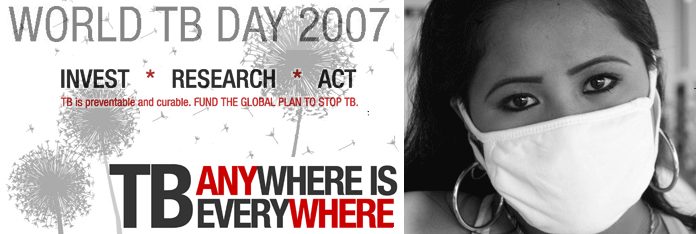
 |
 |
 |
 |
 |
 |

STOP TB in lights,
WHO Headquarters,
Geneva, Switzerland
Taken March 20th 2007
At the Stop TB Partnership we encourage you to light up other buildings around the world in support of World TB Day 2007.
Please send your photos of the illuminated buildings to stoptbitofficer@who.int with a brief description and credit and we will post them on our web site
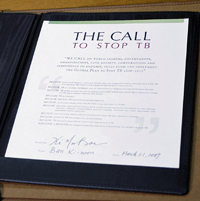
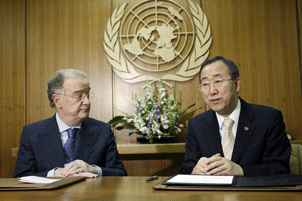 Signing Ceremony on "The Call to Stop TB"
Signing Ceremony on "The Call to Stop TB"
Secretary-General Ban Ki-moon (right) after the signing ceremony on "The Call to Stop TB", with Jorge Sampaio, Special Envoy of the Secretary-General to Stop Tuberculosis (TB), and former President of Portugal, at UN Headquarters in New York.
United Nations, New York Date: 21 March 2007
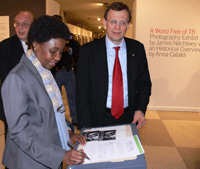
22 March -- UN Deputy-Secretary-General, Dr Asha-Rose Migiro signed the Call to Stop TB at the opening of A World Free of TB, a photo exhibition at United Nations Headquarters in New York City, on the occasion of World TB Day 2007. Dr Mario Raviglione, Director of the WHO Stop TB Department, looked on.

On 23 March the Stop TB Ghana Partnership was launched in Accra. The day started with a caravan across the principal streets of the city, which included distribution of educational materials about TB. WHO country representative Dr Joachim Saweka and Deputy Minister of Health Dr Gladys Ashitey were in attendance.

1.1 Million Lives Saved Through Global Fund Supported TB Programs

Lilly confirme son engagement citoyen
Pour plus d'information rendez-vous sur le site Lilly France www.lilly.fr
GREEN LIGHT COMMITTEE CALLS FOR COUNTRIES
TO SCALE UP ACCESS TO TREATMENT OF DRUG-RESISTANT TB

Paris Press Conference
A press conference was held on 22 March, at the Centre d'Accueil de la Press Etrangère at the Maison de la Radio France in Paris. Invited participants were, from left to right, Dr Jean Hervé Bradol, President of Médecins sans Frontières, France; Dr Michel Kazatchkine Executive Director of the Global Fund to Fight AIDS, Tuberculosis and Malaria; Dr Michèle Barzach, President of Friends of the Global Fund, Europe; Dr Léopold Blanc, a coordinator in the WHO Stop TB Department; and Didier Houssin, Director-General of Health, France.
To celebrate World TB Day this year London Transport have run an information campaign on busses in the city
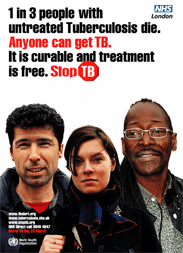
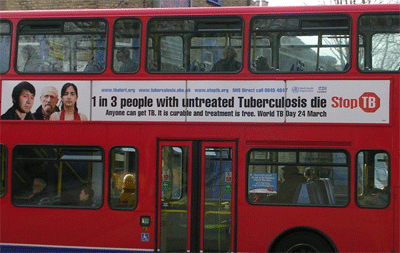

Statements of Support
Statement of support from Dr. Marcos Espinal, Executive Secretary, Stop TB Partnership
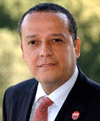 "Tuberculosis remains a massive public health problem around the world, despite recent progress. Last year there were 8.8 million new TB cases and 1.6 million deaths from TB, many of them among people living with HIV/AIDS. And at present, XDR-TB, or extensively drug resistant tuberculosis, represents a threat to the entire world. Our best weapon is to implemnet the Global Plan to Stop TB, but the plan faces a funding gap of US$30 billion. Our arsenal of medicines to treat TB is more than three decades old. We need new drugs to fight this deadly scourge. And we need better diagnostic tests, especially in the face of XDR-TB, as well as the new vaccines."
"Tuberculosis remains a massive public health problem around the world, despite recent progress. Last year there were 8.8 million new TB cases and 1.6 million deaths from TB, many of them among people living with HIV/AIDS. And at present, XDR-TB, or extensively drug resistant tuberculosis, represents a threat to the entire world. Our best weapon is to implemnet the Global Plan to Stop TB, but the plan faces a funding gap of US$30 billion. Our arsenal of medicines to treat TB is more than three decades old. We need new drugs to fight this deadly scourge. And we need better diagnostic tests, especially in the face of XDR-TB, as well as the new vaccines."
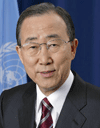
UN Secretary-General, Ban Ki-moon
"We are currently seeing both the fruits of global action to control TB and the lethal nature of the disease's ongoing burden. Almost 60 per cent of TB cases worldwide are detected, and out of those, the vast majority are cured. Over the past decade, 26 million patients have been placed on effective TB treatment thanks to the efforts of governments and a wide range of partners."
Secretary-General calls for scaled up action to combat tuberculosis

UN Deputy-Secretary-General, Dr Asha-Rose Migiro
"The Secretary-General has signed the Call (to Stop TB), as have many other world leaders. I hope yet more will do the same. But we must give life to the pledge we have signed. We must fully implement the Global Plan to Stop TB, 2006-2015. If we do, we will save millions of lives. And we will make it possible to develop urgently needed new TB drugs, diagnostics and vaccines that are essential to eliminating TB. Let us ensure we are equal to that mission, with all the political will and resources it requires."

UN Special Envoy to Stop TB, Dr Jorge Sampaio
Statement to be released after World TB Day.
Audio file: interview between the UN Special Envoy to Stop TB, Dr Jorge Sampaio, and UN Messenger of Peace, Anna Cataldi.
UNAIDS interview (21 March 2007)

UN Messenger of Peace, Anna Cataldi and collaborator on the World Free of TB Photo Exhibition at UN headquarters, New York Statement to be released after World TB Day
Audio file: interview between the UN Special Envoy to Stop TB, Dr Jorge Sampaio, and UN Messenger of Peace, Anna Cataldi.
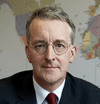
The Right Honourable Hilary Benn, Secretary of State for International Development, UK, has signed a statement in support of the Global Plan to Stop TB on the occasion of World TB Day 2007.
Read the statement
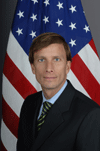
Statement of support from Ambassador Mark Dybul, U.S. Global AIDS Coordinator, on the occasion of World TB Day 2007
"President Bush’s Emergency Plan for AIDS Relief (PEPFAR) is leading a unified U.S. Government response to address global tuberculosis (TB)/HIV, and supports national TB and HIV/AIDS programs that fully integrate HIV prevention, treatment and care with TB services. PEPFAR’s most important work in combating TB takes place through partnerships at the country level to support national health authorities, non-governmental organizations, and community- and faith-based organizations to implement effective TB/HIV programs. By working with affected countries to build high-quality health care networks and increase capacity, we are laying the foundation for nations and communities to sustain their efforts against not just HIV/AIDS, but a wide range of other diseases, including multi-drug resistant and extensively drug resistant TB - long after the initial five years of the Emergency Plan."
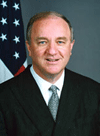
Ambassador Randall L. Tobias, Director of U.S. Foreign Assistance and USAID Administrator
The U.S. is on the frontlines of this difficult battle to eliminate TB as a public health threat to humankind. The U.S. Government is a leading donor supporting the global expansion and strengthening of Directly Observed Therapy - Short-course (DOTS), and currently supports its expansion in nearly 40 countries. Cases treated under DOTS have increased from 1 million in December 2005 to 1.4 million in June 2006 to 2 million in December 2006 (an increase of 30% since June 2006). Through the U.S. Agency for International Development, the American people also support programs that provide technical assistance, training, advocacy, laboratory strengthening, and ensure a reliable drug supply to countries in need.
Read the statement
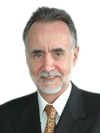
The Global Fund to Fight AIDS, Tuberculosis and Malaria, Executive Director, Sir Richard Feachem
"More than 1 million people are alive today thanks to the hard work of national tuberculosis programs who receive Global Fund resources and are supported by strong partners like the World Health Organization, Stop TB Partnership, the Global Drug Facility and the Green Light Committee. However, TB still kills 1.6 million people each year. We must step up the fight by mobilizing even more resources in order to expand and improve the quality of existing programs to treat both ordinary and drug resistant TB, and to make greater investments in HIV/TB co-infection interventions."

His Holiness Pope Benedict XVI Urges Solidarity With Tuberculosis Victims
Vatican City, March 21, 2007
"This March 24th we will be celebrating World TB Day. May this event favor a growing responsibility in treating this illness and an evermore intense solidarity with those who suffer it. On them and their families I invoke the comfort of the Lord, while encouraging the many initiatives of aid that the Church promotes in this area."
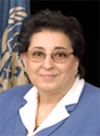
Statement of support from Ms. Thoraya Ahmed Obaid, United Nations Population Fund (UNFPA) Executive Director and United Nations Under-Secretary-General, on the occasion of World TB Day 2007
"Tuberculosis is taking a heavy toll on women, affecting them in the prime of their lives, threatening their health security and that of their families. We at the United Nations Population Fund (UNFPA) call on all countries to scale up TB diagnosis and treatment, especially as a key component of reproductive and maternal health services."

World Bank, Vice President for Human Development, Joy Phumaphi
"Given the world's commitment to halve TB deaths by 2015, the development community must do more to better finance TB control interventions, and the health systems necessary to reduce the deadly impact of this disease and others. While welcoming progress in better TB detection and treatment in a growing number of countries, the World Bank is re-doubling its efforts to help poor countries strengthen their health systems as its best contribution to combating TB worldwide, while encouraging donors to commit to long-term predictable donor assistance for health. In this way, the Bank is committed to help developing countries achieve better TB results in Africa and other regions that are not currently on track to meet their 2015 TB goals, a task complicated by TB's co-epidemic association with HIV and AIDS, and the emergence of extensively drug-resistant forms of the disease."
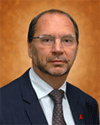
UNAIDS, Executive Director, Dr Peter Piot
"In the last year we have seen unprecedented collaboration between the TB and HIV communities, but much more is needed if we are to achieve our goal of universal access to quality TB and HIV prevention, diagnostic, treatment and care services."
http://www.unaids.org/en/

A Message of Support from Judith Oulton, Chief Executive Officer, International Council of Nurses (ICN)
Read the statement

WHO Director-General, Dr Margaret Chan
"We need to tackle this problem as part of the larger challenge of increasing access to primary health care services. All people no matter who they are where they live should have access to TB diagnosis and treatment as part of a package of general health services that bring multiple health benefits."
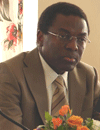
Brazzaville, 5 April 2007 -- WHO Regional Director for Africa, Dr Luis Sambo, has commended efforts being made by Member States in the region to increase investment in health, but warned that more needs to be done to check the persistent threat posed especially by infectious diseases.
Read the full statement
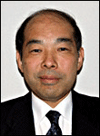
WHO Assistant Director-General for HIV/AIDS, TB and Malaria, Dr Hiroki Nakatani
"We need to learn from our strengths and weaknesses in TB control over the last decade as we step up our response to HIV-associated TB and drug-resistant TB. We can further innovate by collaborating not only across regions, but also across disease control efforts and with those working to battle other public health and development challenges."
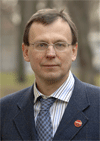
WHO, Stop TB Department, Director, Dr Mario Raviglione
"In 1993, WHO declared TB a public health emergency and called on all governments, in all regions of the world, to make scaling up TB control an immediately priority. Today, 14 years on, WHO can report for the first time since that declaration, global incidence of TB may have peaked in 2005 with 8.6 million cases, and perhaps begun to decline."
WHO press release ¦ Statement [pdf 66kb]
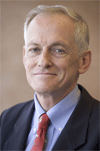
WHO, HIV Department, Director, Dr Kevin DeCock
"TB is the major killer of AIDS patients worldwide. Anti-tuberculosis drug resistance threatens to complicate the TB-HIV interaction even further. It is imperative that HIV and TB programmes work together to limit the spread of TB and prolong the quality and duration of life for people living with HIV/AIDS."
http://www.who.int/hiv/
 Join the Partnership
Join the Partnership
 Join our mailing list
Join our mailing list
 Suppport the Partnership
Suppport the Partnership
 Link to our web site
Link to our web site
 Contact Us
Contact Us

|